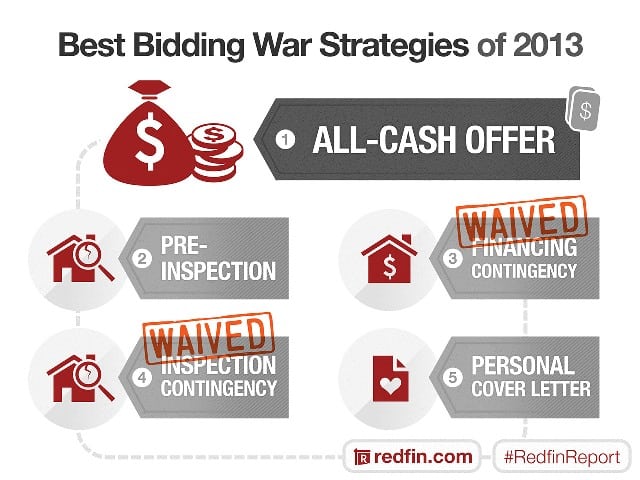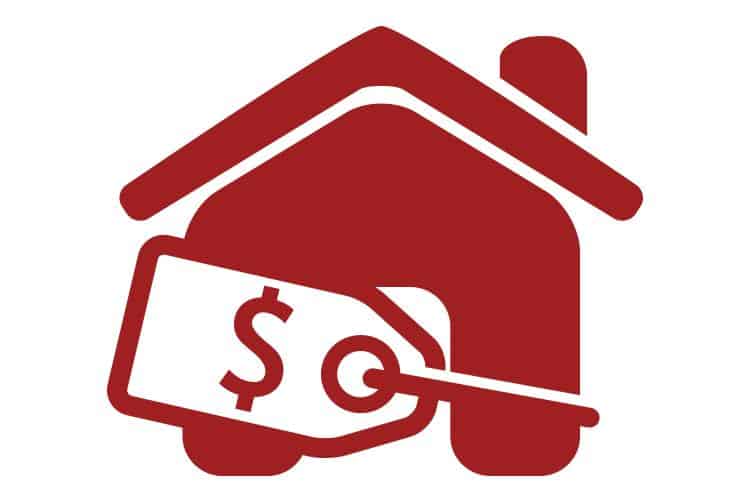
There are certain situations in life when it pays to do your research. Negotiating your salary is one; buying a home is another. If you’ve been saving for a down payment and are finally ready to take the plunge into home ownership, you’ll find yourself in a whole new world filled with plenty of jargon.
Here are ten real estate terms you should know and understand before you start looking for a home. Educating yourself on the lingo will not only make you more confident throughout the process, it can ensure that you don’t miss important steps that could cost you a fortune in the future.
1.) Buyer’s Agent vs. Listing Agent: There are usually two agents involved when you buy a home; the “buyer’s agent,” who represents you, and the “listing agent,” who represents the home seller. One thing many people don’t realize is that when buying a home, you don’t have to pay your real estate agent; they’ll get a commission from the home seller.
*Money saving tip: Choose a broker who will give you part of their commission back, like Redfin, which serves 22 major metropolitan areas in the U.S.
2.) Fixed Rate vs. Adjustable Rate Mortgages: Conventional loans include “fixed rate” and “adjustable rate” mortgages. A fixed rate mortgage has a predetermined interest rate throughout the life of the loan; the most common are for 30 years. An adjustable rate mortgage has a variable interest rate; the most common are for 5, 7, or 10 years.
*Money saving tip: Adjustable rate mortgages can make financial sense if you’re planning to sell or refinance your home before the introductory period ends; but if you’re planning to own your home longer than five years, it’s less risky to choose a fixed rate loan. Make sure to shop around so you can get the best mortgage possible, which will save you a lot of money in the long run. Ask your friends, family, and real estate agent for lender recommendations. One great online resource for recommendations is Redfin Open Book, which posts reviews of lenders from people who recently bought a home.
3.) Pre-approval Letter: Before you apply for a mortgage or even start looking for a home, you should get a pre-approval letter from the bank, which is an estimate of how much they’ll lend you. This letter will help you determine what you can afford, and ensures home sellers that you will be able to get a loan when needed.
*Money saving tip: When you go in for a pre-approval letter you should be clear on what the bank is offering. Ask them about closing costs, what fees are involved, what you’re getting for that fee, and if they’ll lock in your loan at a specific interest rate. Note that if you end up competing for a home against other offers, it can help to have a local lender. Local lenders want continued referrals and really care about their reputation; listing agents prefer to deal with them for this reason.

*Money saving tip: For the most up-to-date listings, use sites from real estate brokers like Redfin, rather than real estate portals. Brokers have access to the multiple listing service, which real estate agents are required to update, so the information is more accurate than sites who aren’t affiliated with a brokerage. In a competitive real estate market, you can miss out on a good deal if you use sites that don’t show all the homes for sale.
5.) Inspection: After you’ve made an offer on a home, you’ll need to schedule an inspection, which costs around $500 – $800, depending on the market. The inspector will go through every nook and cranny, and review things like the plumbing, electrical, foundation, walls, heating, and appliances.
*Money saving tip: Get advice from your realtor on a good inspector. If he or she finds something wrong, you can negotiate for a reduced price. If he or she misses something, you could be stuck with expensive repairs after you’ve purchased the home.
6.) Appraisal: When you apply for a mortgage, your lender will require an appraisal of the home you want to buy. A licensed appraiser will estimate the home’s value based on comparable homes that have sold in the area and an investigation of the property.
*Money saving tip: If the appraised value is less than the offer you are making on the home, you might not be approved for a loan. The bank doesn’t want to invest in a home that’s overpriced (and neither do you!). Before making an offer, consult with your real estate agent and do your own research on the home’s value using tools like the Redfin Home Value tool.

*Money saving tip: If you’re in a bidding war on a home, sometimes it can help to shorten contingency periods or waive them altogether. You may not necessarily have to pay more money, just be more flexible.
8.) Offers and Contracts: Once you find the right home, you’ll make an offer on the property with the help of an agent or attorney. If the seller counters your original offer, it’s usually because they want more money or a faster timeline for closing the deal, at which point you’ll have to negotiate. When submitting an offer, it’s a good idea to include a cover letter that explains why you want to buy the home and adds a personal touch.
*Money saving tip: Choosing an experienced realtor is key to winning in negotiations. Do your research to find one who has done recent deals in your area, and be sure to read online reviews. Redfin publishes all reviews of its agents, the good and the bad, so you can determine if you’d like to work with them. And as far as the cover letter goes, don’t discount the fact that a “love letter” to the seller is worth money in the bank. Make it personal; tell them how you envision pushing your children on the swing set in the back or baking cookies in the kitchen. Appeal to the seller’s feelings of parting with the home they have made so many memories in.

*Money saving tip: Ask your lender about every fee involved in the Good Faith Estimate, and see if you can shop around for a better price for those services or negotiate down. Examples include homeowner’s insurance, wire transfers, underwriting and settlement fees.
10.) Title Insurance: After all the negotiations are done and the seller has accepted your offer, you should receive a home title report within a week. Most mortgage lenders require you to pay title insurance as part of the closing costs; title insurers search the public records to make sure the home seller actually had rights to the title and that there are no liens on the home (like an unpaid contractor or unpaid taxes).
*Money saving tip: Ask your agent for recommendations, and shop around to find the best title insurance rates. You may also be able to negotiate some fees the insurance provider charges.
For more real estate terms you’ll encounter throughout the process, check out the Real Estate Glossary on Redfin.com.

About Lynn Ikle, Redfin Agent
The purchase of a home is the single, largest investment in a person’s lifetime. My goal is making that process from the first tour to closing, as smooth as possible. Redfin provides the technology and resources that far surpasses the competition, which in turn empowers the client with all the information on the area and property that is of interest. When I discovered Redfin, having sold real estate since 2008 for a traditional brokerage, I knew I had to become a part of it. Our team, customer driven, paid on satisfaction approach, puts the emphasis where it should be. On the client! This is the future of real estate! To read reviews from my previous clients or to get in touch with me about buying or selling a home in Baltimore, please visit Redfin.com.



























 United States
United States Canada
Canada